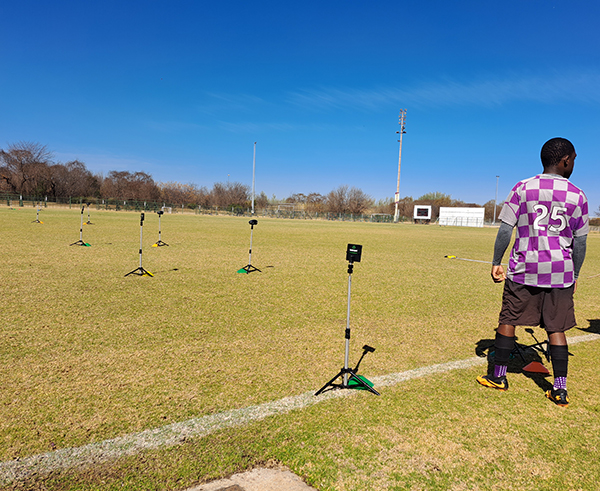They thrive on adrenaline, excitement and energy, but it is particularly sleep or the lack of it that can impact the performance of athletes. A researcher from the North-West University (NWU) says her research has shown that ensuring good sleeping habits, or sleep hygiene as it is known, not only improves athletic performance and endurance capabilities, but also athletes’ overall well-being.
Dr Adéle Broodryk, herself an accomplished road-running athlete who was second in this year’s Women’s Comrades Marathon and has excelled in various other running events, is a researcher in the Physical Activity, Sport and Recreation (PhASRec) research focus area. Her research investigates how to improve sport performance through various recovery techniques, one being sleep.
“Sleep is an essential part of everybody’s 24-hour routine, and yet it is the one aspect that is easily neglected. Without enough sleep humans cannot ‘recharge’ and be at their best. This lack of sleep can strongly affect athletes.”
Exchanging soccer gear for pyjamas
The NWU’s male soccer teams participated in Dr Broodryk’s study to determine the effect of sleep hygiene interventions.
The players were monitored and evaluated on various aspects to find out whether or not they experienced any benefits from the interventions. The research was done through a crossover design, involving a week of tests and then a week without testing, after which the cycle was repeated again.
They had to undergo various physical tests for hand-eye coordination, speed, vertical jumps, aerobic and anaerobic tests, and also had their heart rates and emotional well-being monitored.
Each player had to choose 10 out of 16 sleep intervention guidelines to follow. These included switching cell phones to sleep mode (dimming the screen) from 19:00 each night, reducing television and cell phone screen time from 21:00, and refraining from using cell phones in the 30 minutes before sleep.
Participants had to take a warm shower or bath before bedtime to elevate their core body temperature, enabling them to reach slumber mode quicker.
Dr Broodryk says they also received apparatus such as Sleep Spec Glasses to wear from 17:00 after sport practice. “The glasses minimise their exposure to sharp light. Too much light inhibits the natural melatonin hormone which is needed in everyone’s sleep-wake cycle.”
She says the soccer players received ear plugs and eye masks to help them to sleep better. They were also encouraged to take 20-minute power naps earlier in the day.
Dr Broodryk says her research proved that effective sleep does indeed have a great impact on athletes. “This is not only on the field where their performance was better and they were more able to endure the demands of the game, but in their daily lives too. It confirmed that good sleep also positively impacted their studies, sportsmanship and mindset.”
Now that her work with the male soccer players has been concluded, Dr Broodryk says the next part of her research will focus on the female soccer players and their experiences of sleep interventions.
“I plan to expand the project in the future to include athletes of all the other sport codes at the NWU. In the end, it is all about ensuring that our athletes can be the best they can be and to find ways to take them to the top of their game.”
Once in a lullaby…
How do you achieve the best sleep possible? Dr Broodryk says there are various sleep hygiene guidelines to improve the quality and quantity of sleep. These include maintaining a good sleeping routine and avoiding erratic sleep habits. One can also invest in sleep apparatus or technology.
“The most important habit is a fixed sleep routine,” she says. “Your body has a circadian rhythm (a 24-hour cycle) that is part of its biological clock. This rhythm is different for each of us, which is why some people are early risers and others not. A fixed sleep routine ensures that the clock is not disturbed and that you can function optimally.”
But how do you achieve a good sleep routine when the demands of work and family often requires late nights and less sleep? Dr Broodryk’s advice is to go to bed at the same time every day. “Rather set your clock to get up earlier. Research has proven that going to bed later has a worse ripple effect on your day than waking up earlier.”
So, put out the lights and hit the pillow; you know you need it, sleepy head.

Dr Adéle Broodryk,

The NWU’s male soccer teams participated in Dr Broodryk’s study to determine the effect of sleep hygiene interventions.
